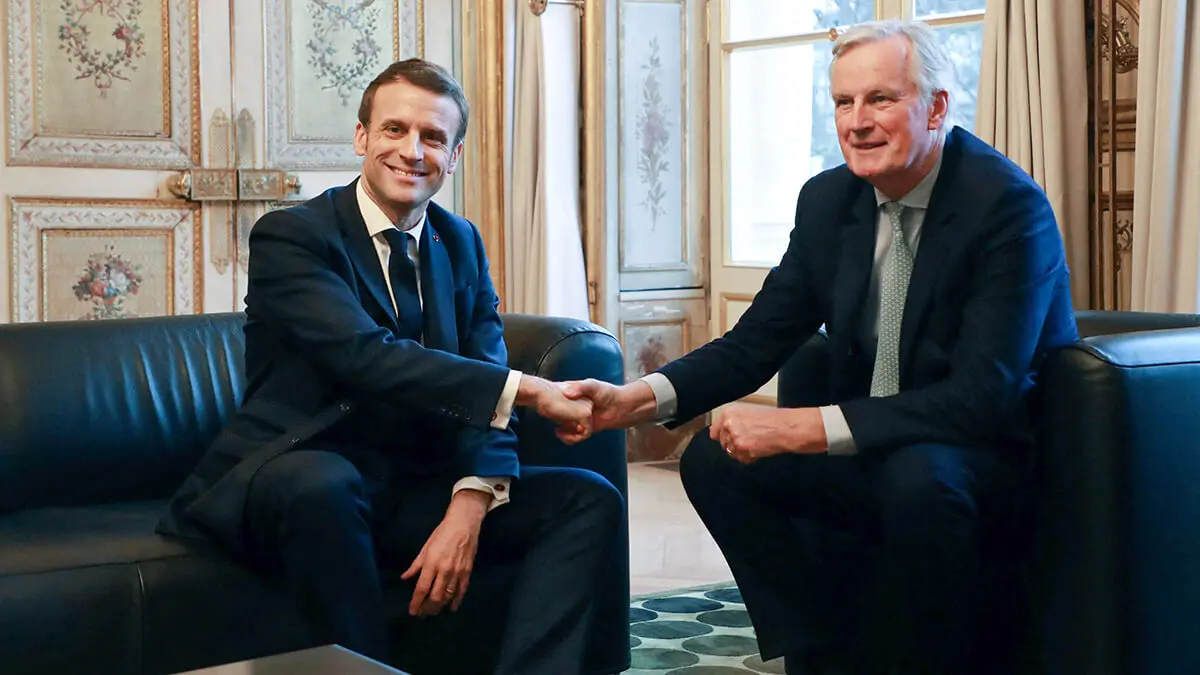France, an exhausted model

This is what he solemnly proclaimed in his speech on Thursday night, in which he did not make any self-criticism - “my decision to call general elections was not understood”, immediately after the defeat of his supporters in the European elections-, a speech in which he blamed almost the entire parliamentary arc for “not having assumed their responsibilities” by overthrowing Michel Barnier's government.
Although he tried to be firm and reassuring at the same time - “I will assume my responsibilities at the head of the State until the last day”, and the country continues its march: “salaries are paid, public services work...”- Macron knows that the motion of censure was actually directed against him, and that a good part of the French political spectrum, especially the extreme left, wants to collect his head from the first day of this troubled legislature.
The root of the problem lies in the fact that the country lives under the umbrella of the 1958 Constitution, tailor-made by General Charles De Gaulle to bring France out of a then emergency situation. The head of state is endowed with powers comparable to, and even superior to, those of the presidents of the United States.
As if that were not enough, these powers could become even more exceptional, according to Article 16, “in the event of a serious and immediate threat to the institutions of the Republic, the independence of the Nation or the integrity of its territory”.
A two-party system was also designed to guarantee stability, through the two-round majority electoral system, partially modified during the mandate of the socialist François Mitterrand, which then favored the emergence of the ultra-right of Jean-Marie Le Pen's National Front, with the aim of weakening the traditional right and thus guaranteeing the permanence of the left in power.
In France, Europe and, of course, in the rest of the world, all that is past history, without the vast majority of the old political class, even if it is full of young faces, having made any more than minor cosmetic changes.
Globalization has added another determining factor of distortion, as it has been empirically demonstrated that national governments hardly have the control and tools to solve the problems of their citizens, although they can seriously worsen those that outside forces and pressure groups put on the table every day.
France, together with Germany, the main engine of the European Community, has failed to carry out the necessary and increasingly pressing structural reforms it needs. One after another, successive presidents have backtracked when their reformist programs were confronted by a population and trade unions accustomed to the protective and nanny state.
The prolongation over time of rights and privileges, as if time had stood still and the rest of the world was not progressing, has resulted in a chronic deficit of 6% this year, a debt of 113% of GDP, now estimated at three trillion euros and rising, and a risk premium that puts the country on a par with Greece when it comes to financing.
With a new world order being forged at breakneck speed, while new and serious external threats loom over the EU, it is clear that the old recipes will not do. Of course, a far left like Jean-Luc Mélenchon's La France Insoumise, which advocates an almost Castro-Bolivarian program, would not get the country out of the morass.
The Socialists would do well to detach themselves from this New Popular Front so as not to be impregnated with such a patina. The attitude of former President François Hollande, encouraging his party to join the motion of censure and bring down Michel Barnier, has been curious.
As for Marine Le Pen's National Rally (RN), it has shown that, even if the cordon sanitaire has prevented it from establishing a Prime Minister, it is the force to which, as in many other countries, citizens disappointed and chastened by the ineffectiveness of the traditional parties are turning, as in many other countries.
Whatever the political arc to be designed, the opinion of more than a third of the electorate will have to be taken into account, in France and elsewhere. The country will have to modulate the art of political compromise and get rid of labels that stigmatize and thus strangle initiatives that can be useful, whoever they are proposed, to design the future.
With exceptions, if any, in Europe and the civilized West there seems to be no room today for Stalinist or national socialist formations.
It would therefore be time to recover the democratic essences of the art of convincing in order to face challenges that are already knocking at the doors, and not only in France. In short, to try to make up for lost time and to rise to these challenges.

